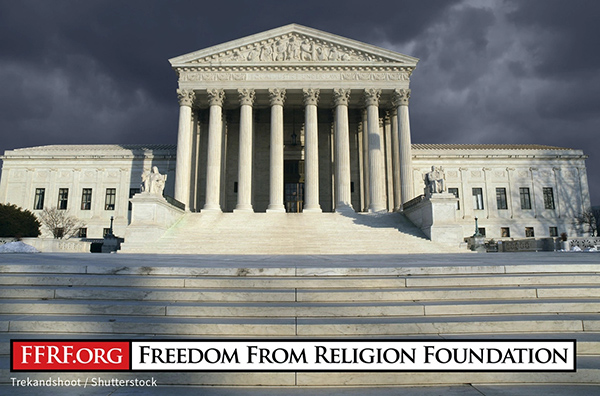
The Supreme Court began its fall term two days after tens of thousands of citizens marched to signal to the court their support for abortion rights, and as a new poll reveals plummeting public approval of the institution after it failed to block a clearly unconstitutional Texas abortion ban.
The justices must be feeling the heat, because they’ve started to make public statements, with four extremist justices, notably the newest justice, Amy Coney Barrett, spouting the most defensive comments. Shortly after the controversial abortion decision by the court, she said, “My goal today is to convince you that this court is not comprised of a bunch of partisan hacks.” (Shades of Nixon’s “I am not a crook”?)
Barrett, whose nomination is a case study in the politicized nature of the Supreme Court process, nevertheless insisted that the court isn’t politically driven. Irony of ironies, she delivered her speech at the McConnell Center at the University of Louisville, named for the very senator in attendance at her lecture who led the campaign to steal two seats on the high court. First, Mitch McConnell as Senate majority leader refused to hold a hearing for Merrick Garland, nominated by President Obama, when he still had 11 months left in his presidential term. McConnell stole that seat, claiming that in an election year, voters should determine which president nominated Justice Antonin Scalia’s replacement. (McConnell thus preserved the right-wing ideological tilt of the court.)
McConnell then reversed course after Justice Ruth Bader Ginsburg’s death on Sept. 18, 2020. Showing no compunction or embarrassment over his hypocrisy, McConnell rushed through President Trump’s appointment of Barrett in the midst of the 2020 national presidential election. Only 30 days after she’d been nominated, Barrett was confirmed on Oct. 26, 2020, about a week before Election Day, when more than 60 million Americans had already voted.
Last week, Justice Samuel Alito denounced critics for portraying the court as “sneaky” and “sinister,” claiming critics are trying “to intimidate” the justices. The Catholic justice, one of six Catholic justices — five of whom vote in a conservative bloc — complained to an audience at Notre Dame Law School that the court has been cast as “a dangerous cabal . . . deciding important issues in a novel, secretive, improper way, in the middle of the night.”
Those are his words, not ours. Did Alito forget that the majority issued its ruling not to block the Texas ban shortly before midnight? That cavalier last-minute ruling has created a crisis for abortion care in Texas and bordering states that is growing worse daily. As Reuters has documented, there are many more shadow docket (emergency ruling) cases being issued without full review, which are bypassing federal appeals courts, privileging religion and buttressing Trump policies.
Justice Clarence Thomas, known for his near-silence on the bench during non-pandemic times, also spoke defensively to a Notre Dame audience. Apparently criticizing advocates for court reform and expansion, he said, “I think we should be careful destroying our institutions because they don’t give us what we want when we want it.” What Thomas, who seems to see his role as being justice disciplinarian, intends to give us is the overthrow of Roe v. Wade, which he has said has “no basis in the Constitution.”
Liberal justices Stephen Breyer and Sonia Sotomayor have also been speaking out. Breyer told National Public Radio that the decision by the court majority not to block the Texas ban was “very, very, very wrong.” In Breyer’s new book, The Authority of the Court and the Peril of Politics, however, he cautions against “political intervention” on the court. Sotomayor, who has replaced Ginsburg as the voice of dissent on the court, told a group of law students about her frustration over having to write so many dissents and warned, “There’s going to be a lot of disappointment in the law, a huge amount.”
“Can our nation truly have an independent judiciary if the judicial nomination process has been politicized to this extreme degree? How can we rebalance and depoliticize the court after McConnell has brazenly stolen two seats for political reasons?” asks FFRF Co-President Annie Laurie Gaylor.
The Freedom From Religion Foundation continues to call for court reform and expansion as necessary to safeguard liberty, since the federal judiciary already has been “packed” by McConnell and Trump with hundreds of judges chosen precisely because they’ve passed extremist litmus tests.